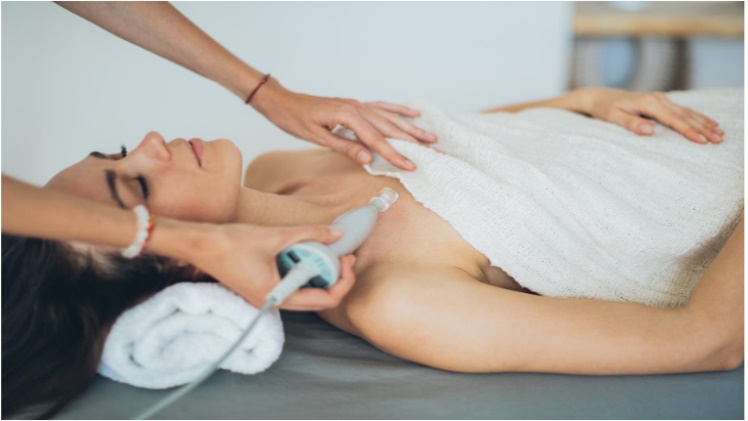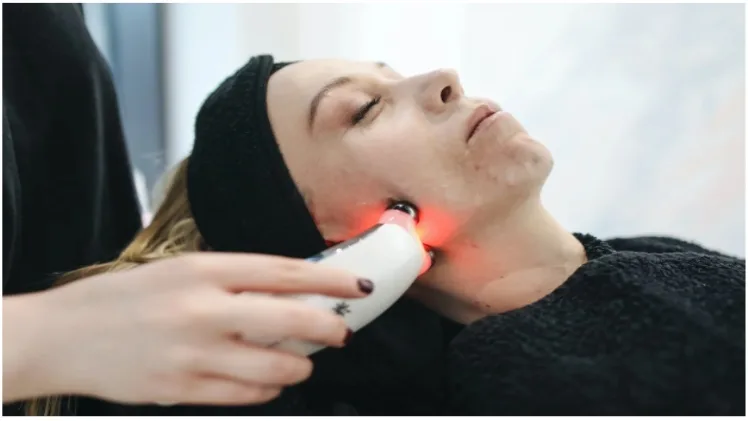Embarking on the journey of laser hair removal is an exciting decision for many individuals seeking a more permanent solution to unwanted body hair. However, understanding what to expect during a laser hair removal consultation is paramount. This introductory guide aims to shed light on the significance of this initial step in the process and its role in making an informed choice.
Benefits and Risks of Laser Hair Removal
Laser hair removal has gained popularity as a cosmetic procedure offering a semi-permanent reduction in unwanted body hair. While it presents numerous benefits, it is essential to acknowledge the associated risks. This article seeks to explore the advantages and disadvantages of laser hair removal, and how the hair removal consultation works, empowering individuals to make informed decisions about its suitability for their needs.
One of the most notable advantages of laser hair removal is its capacity to deliver permanent results. In contrast to traditional methods like waxing or shaving, which necessitate frequent repetition, laser treatments offer enduring outcomes following just a few sessions. These treatments operate by targeting the pigment within hair follicles, leading to gradual disintegration without harming surrounding skin tissue. Consequently, it emerges as an effective and safe method for bidding farewell to unwanted facial and body hair permanently.
Precision and accuracy are additional strengths of laser treatments. The laser beams are meticulously aimed at specific areas, ensuring the removal of even fine hairs that might elude traditional methods like waxing or threading. Furthermore, the precise targeting minimizes the occurrence of ingrown hairs often associated with other hair removal techniques, contributing to a smoother and irritation-free experience.
Moreover, laser treatments are known for their relative speed and comfort compared to alternative hair removal approaches, such as waxing or electrolysis.

Preparing for a Consultation: What to Expect
Preparation is key when anticipating a laser hair removal consultation. The initial consultation serves as an in-depth discussion with a healthcare or aesthetic professional regarding your unique requirements and expectations. To ensure a productive consultation, here’s a glimpse of what to anticipate.
Prior to the consultation, gather all pertinent information and documents related to your specific concerns. This may encompass medical records, previous test results, or notes from earlier appointments. Compile a list of questions that you intend to address during the consultation. Document any symptoms or concerns you’ve been experiencing to facilitate a comprehensive discussion during the session.
Arrive punctually for the consultation, dressed appropriately for the occasion. Remember to bring along all relevant documents and any questions or topics you wish to discuss. It can also be beneficial to have a supportive companion accompany you during the consultation, someone who can offer reassurance and take notes to ensure no crucial details are overlooked when discussing potential treatment options.
During the initial consultation, the healthcare or aesthetic professional will likely engage in a comprehensive discussion about your medical history, current concerns, and objectives regarding laser hair removal. This dialogue helps them gain insights into your individual situation and formulate a tailored treatment plan.
Potential Questions to Ask During the Consultation
Selecting the right healthcare provider entails a thorough consultation process, during which all questions must be addressed, and comfort with the provider must be established. To facilitate a fruitful dialogue with your prospective healthcare provider, consider asking these pertinent questions during the consultation:
What is your training and experience in treating my specific condition?
Are there specialized techniques or treatments available for my condition?
What results can I realistically anticipate from the recommended treatment?
What post-treatment care or follow-up is necessary?
What are the potential risks associated with this specific treatment plan?
What is the expected duration of stay if hospitalization is required for this procedure?
Are there any lifestyle adjustments I should make to enhance my overall health and prevent complications?
What is your policy regarding prescribing medications, and what potential side effects should I be aware of?
Do you accept insurance coverage for this procedure or consultation, and if so, what are the available copayment options?
Asking these critical questions during the consultation ensures that you gain a thorough understanding of your treatment options, potential risks, and expected outcomes.
Aftercare and Follow-up Appointments
Aftercare and follow-up appointments constitute an integral component of any medical procedure. These visits are designed to monitor your recovery, ensuring that it progresses smoothly and without complications. Additionally, they facilitate timely responses to any changes in your health.
It’s crucial to recognize that aftercare and follow-up appointments encompass not only the physical aspect of your recovery but also your emotional well-being. During these appointments, healthcare professionals often inquire about your physical and mental state, including any concerns or alterations in your lifestyle post-procedure.
Furthermore, discussions during follow-up appointments may encompass symptom management, potential side effects, and advice on self-care during the recovery phase. For instance, after surgical procedures, you may receive guidance on proper wound care, bathing techniques, or rehabilitative exercises to enhance post-operative mobility.
The frequency of follow-up appointments hinges on various factors, including the type of procedure and individual circumstances. Typically, these appointments occur every few weeks over several months following the treatment. Attendance at all scheduled follow-up appointments is essential, as it enables healthcare professionals to assess your progress, address any concerns promptly, and guide you through a successful recovery.
Conclusion
In conclusion, a laser hair removal consultation serves as a pivotal step in the journey toward smoother, hair-free skin. This initial encounter empowers you to delve into the details of the procedure, including the number of sessions required for optimal results and potential side effects or risks. By approaching the consultation with thorough preparation and embracing aftercare, laser hair removal can become a transformative means of achieving long-lasting smoothness without the burden of repetitive maintenance.



